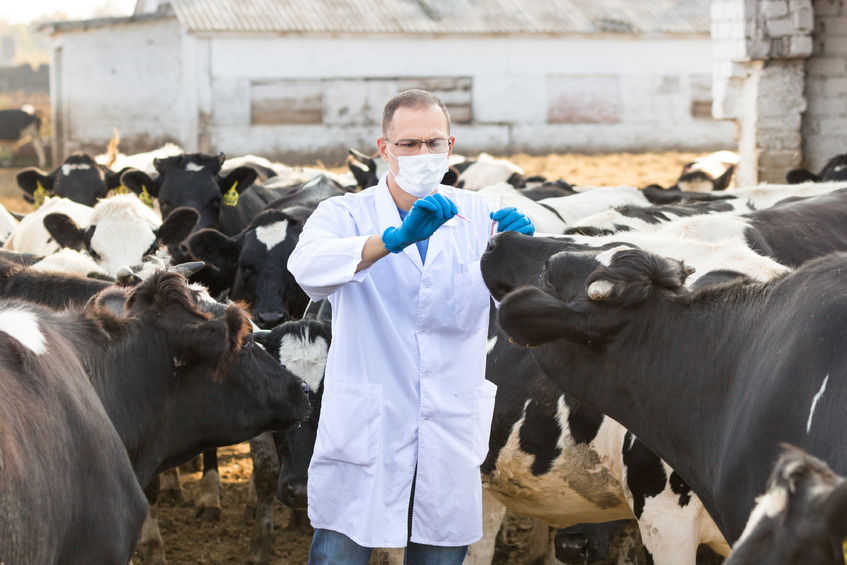
A number of cattle in a consignment from an assembly centre in France have tested positive for Bluetongue virus BTV-8 in the UK, the government has announced.
The UK’s Chief Veterinary Officer has urged farmers to remain vigilant for signs of bluetongue virus after the disease was successfully picked up in a number of cattle imported from France through the post-import testing regime.
The Animal and Plant Health Agency (APHA) identified the disease in cattle after they were brought to Preston and Kendal in England and two locations in Scotland.
A total of 32 animals came from the same assembly centre in France, in an area where multiple cases of bluetongue have been confirmed since September this year.
Action is being taken to ensure there is no spread of the disease, with movement restrictions at the affected premises, targeted surveillance and culling of animals where necessary.
Strict rules on the movement of livestock from regions affected by bluetongue are in place, the government has said.
The UK remains officially bluetongue-free and exports are not affected.
'Severe disease'
Chief Veterinary Officer for the UK, Nigel Gibbens said Bluetongue does not pose a threat to human health or food safety, but can cause "severe disease" in some cases.
He said it can also have a negative impact on farm incomes, for example by causing reduced milk yield in cows and infertility in sheep.
"We continue to carefully monitor the situation in France, where Bluetongue disease control measures are in place," Mr Gibbens said.
"This detection is a good example of robust disease surveillance procedures in action and should highlight to farmers the risks which come with bringing animals from disease-affected areas into their herds.
"It is also a timely reminder for farmers that the disease is still a threat, despite coming towards the end of the period when midges are most active.
"Keepers must remain vigilant and report any suspicions to APHA. They may also want to talk to their vet to consider if vaccination would benefit their business."
Movement restrictions
The affected animals will be dealt with under the Trade in Animals and Related Products regulations.
Cattle with a high risk of being infected with the BTV-8 strain of bluetongue or which had not been vaccinated before being exported will be humanely culled, the government has said.
Farmers will have the option to send those animals without fully compliant paperwork back to France or to cull them to reduce the risk of disease spreading to susceptible UK livestock.
Movement restrictions will be in place on the premises for several weeks until testing rules out spread via local midges.
BVA, the British Cattle Veterinary Association, Sheep Veterinary Society and Goat Veterinary Society have stressed the importance of careful animal sourcing.
Commenting, BVA Senior Vice President Gudrun Ravetz said: “It is reassuring that the systems we have in place for post-movement testing have ensured the disease has been detected quickly, and that action has been taken.
“However, it is a grave and timely reminder to all livestock keepers of the importance of responsible sourcing of animals, and of fully understanding the potential disease risks of importing animals from areas where disease is known to be circulating.
“Farmers should always consult their local vet and act within their farm health plan when sourcing new animals."
Reduce milk yield
Bluetongue virus is transmitted by midges and affects cows, goats, sheep and other camelids such as llamas.
It can reduce milk yield, cause sickness, reduce reproductive performance or, in the most severe cases, cause death of infected animals.
The UK government has worked closely with a number of groups to raise awareness of the threat of bluetongue through the Joint campaign Against Bluetongue (JAB).
The most recent case of the disease in the UK came in 2007. The UK has been officially free from the disease since July 2011.
